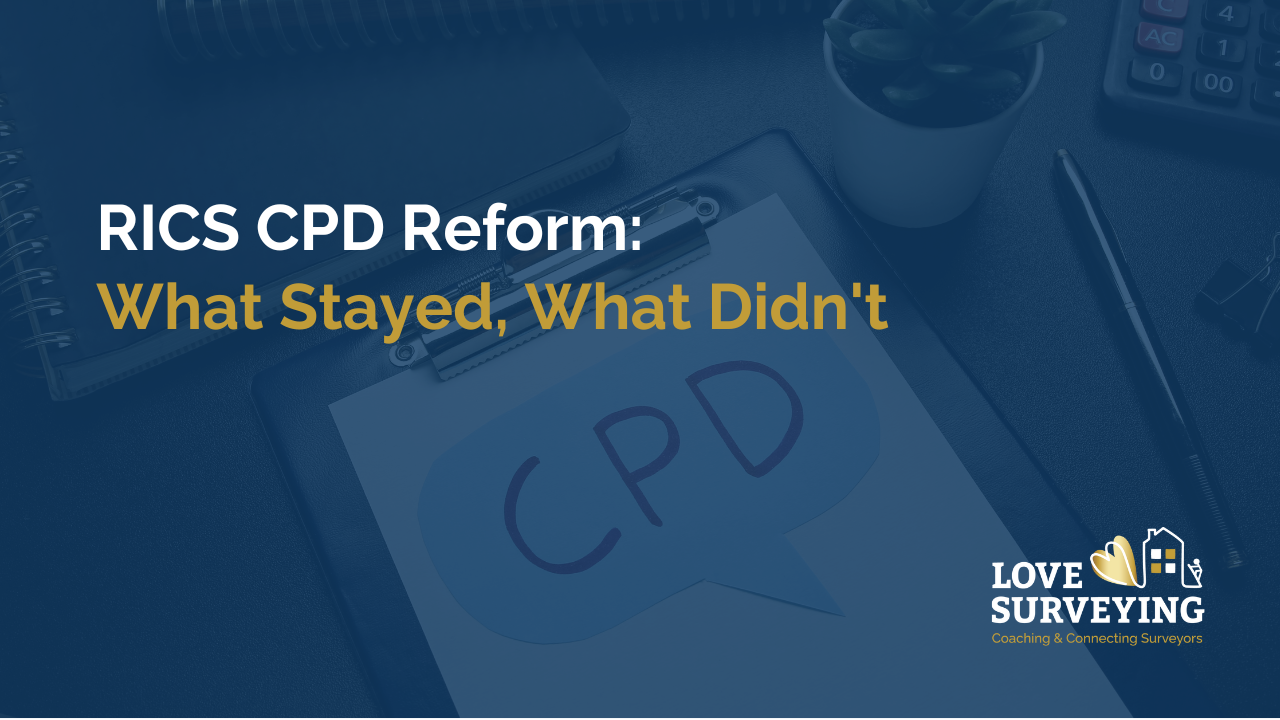How to sell Home Surveys - A Guide for Surveyors

As a surveyor, I suspect you either love speaking to potential clients or absolutely hate it. And if you work for yourself and don’t have an admin team to support you, then you will be the one talking to potential clients.
This has its advantages - they get to speak to a real-life surveyor, and you get to demonstrate your expertise and local knowledge. On the downside, speaking to the public is a skill; it wastes time and can feel like ‘selling’ as many surveyors tell me; you are not salespeople but surveyors.
We also worry about discussing the fee - and it’s a vulnerable position to be in because if they say no, it can affect your self-esteem and confidence. The real failure, though, is not asking for the work in the first place.
I’ve been responsible for selling surveys, and as a small business owner, I’ve also had to learn how to navigate those icky sales conversations myself. Here is what I’ve learned:
Start with a warm introduction
The first step in any sales conversation is a warm introduction. You want to start the conversation on the right foot, so begin with the friendly Three W's:
- Who: Identify yourself. A simple "Hi, I'm [Your Name] from [Your Business]" works wonders.
- Where: Mention your business and briefly explain what it does - remember not everyone knows what a surveyor does, so keep it short, clear and straightforward. If you need a guide try ‘I help X, achieve Y, by doing Z’. This sets the context for your call and lets the other party know what to expect.
- Why: Explain the reason for your call. Are you reaching out to discuss a product, service, or opportunity? Be concise but engaging. If they are calling you, ask them what prompted them to get in touch with you and how you can make the call useful.
The key is to start with being friendly and approachable. You want to create a positive atmosphere right from the start.
Building Rapport & Identifying Needs
Now that you've made your introduction, it's time to build rapport and identify the client’s needs. This step is all about sparking meaningful conversations. Use open-ended questions to get the dialogue flowing:
- "Have you visited the property yet?" This helps gauge their progression in the buying process.
- "Did anything about the property worry you?" If they express concern, use this as an opportunity to highlight the necessity of getting professional advice and a home survey.
- "Is this your first home purchase?" First-time buyers often need more guidance and reassurance about the home-buying process.
- "Have you had a home survey before?" Find out what they found valuable about it.
- "Are you buying this property for your use or rental purposes?" Tailor your conversation based on their response.
Be attentive to buying signals during the conversation. They could provide valuable insights to tailor your approach. Importantly, keep it reassuring and tune into their excitement about the move.
Providing a Personalised Solution
After understanding the client’s needs, it's time to present a customised solution that addresses their unique concerns - even if you offer a standard range of services. This will help them feel understood. Your job is to find out what they are worried about and tell them how you can help them.
For instance, if they're worried about potential dampness in the property, explain how your inspection and professional advice can provide valuable insights into such issues. You are not just prescribing a level of survey; you are offering a tailored solution enabling them to do the next thing.
Use affirming, closed-ended questions to get them to agree, such as "Yes, you'd want to ensure that your future home is completely safe before moving in, right?”. Clients want to know they're doing the right thing, so remind them and give them a well done for seeking out professional advice and speaking to you.
Paint a vivid picture by sharing relevant stories and experiences. This demonstrates your expertise and shows you know what you are discussing. It also allows them to see the difference you have made for clients in similar situations, which adds to your credibility and builds trust. Add in the location and type of property in your examples to make it more relatable.
Presenting the Fee
When disclosing the fee, be confident and reassuring:
- "Our service is available at just £XXXX."
- "Considering the cost of the property, our service is a small but crucial investment."
Share your expertise and availability for further assistance. After sharing the price, gauge their response with a simple question like, "How does that sound to you?".
Addressing Concerns
Circle back to the earlier part of the conversation and address their concerns. If the cost is an issue, remind them of the potential cost of repairs and the peace of mind your service provides.
If they mention cheaper alternatives, remind them of:
- The credibility and quality assurance you offer
- Your qualifications and experience
- The benefits of being in a professional membership body - it’s not just about PII; it’s ethics and professional conduct too.
- No two survey quotes are the same because no two surveyors are the same.
- They are not comparing like with like; levels of survey are minimum standards only, and you do your surveys your way.
Explaining the Process
Explain what you will do, what they must do, and when. Your service is not an insurance guarantee; it is a tool that empowers, and you will help them use it. Explain their primary responsibility is to make the payment, ask at any time if they have questions or do not understand something, they must review the report fully once it's ready, and keep talking to you if they have any concerns.
Closing the Deal
Closing the deal can be challenging, but being assumptive can ease the process. Remember, you're offering a service, not just a sale. Always end with a yes:
- “Has this call been useful to you?”
- "Shall I proceed with arranging the survey for you?"
- "When would you like the survey to be carried out?"
- "Shall we schedule the survey?"
If they're hesitant, ask them for the reason - what are they nervous about and address it. If they need to consult with a partner, offer to call back at a convenient time or speak to the partner immediately if available.
Finally, leave them with your name and contact details, ensuring they have a direct line to you for further assistance.
When it’s a no…
Sometimes, it is just not the right time. It’s always important to find out why; otherwise, you may be missing a reason, a simple question you are (or are not) asking as part of your sales conversation.
Keep track of your conversions to help you focus on where things may go astray. Every call and interaction with a client costs you money, so you want more converting conversations than not.
And if it is down to budgets and timescales, still ask for a review if you have been helpful; most people will oblige.
In conclusion, mastering these seven steps can help you navigate sales conversations effectively and increase your chances of closing deals. Remember, it's not just about making a sale; it's about providing a valuable solution to your customers. Good luck with your sales journey!
A final note on boundaries…
Conversations with clients and the public can take far too long and often drift. If, at an early stage, it is apparent you do not want the work or will not be a good fit, then tell them upfront. Do not increase your fee to put them off. Be helpful by sign-posting them to other resources, such as other local surveyors and a guide to choosing surveys or trades. When they are ready and if they are the right clients for you, they will come back.
I hope you found this article helpful; feel free to share it with your network, and if it feels right to do so, you can 'Buy me a Coffee' as thanks using the link below.
PS - You might also like to read How to Handle Objections About Your Survey Fees.





